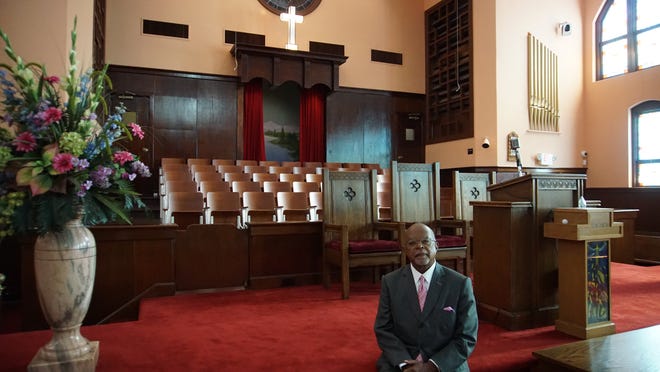For centuries, the Black church has towered over American life.
“The church was the epicenter,” Stacey Holman, producer-director of a vibrant PBS documentary, told the Television Critics Associaition. It was “where we could gather freely, we could commune freely.”
It’s been a place of music and message, said gospel great Yolanda Adams. “Jesus was always about uplifting the people who were downtrodden.”\
And it’s been a place of permanence, said Henry Louis Gates (shown here), the show’s writer and host. “The Black church is the oldest, the most continuous and most important institution” in African-American history. So he’s fashioned “The Black Church: This is Our Story, This is Our Song,” from 9-11 p.m. Tuesday and Wednesday (Feb. 16-17).
His film does find fault. In the Black church, Gates said, “the backbone is women, and it is dominated by men. That’s wrong. It’s been homophobic and that has to be changed.”
And the film refutes common beliefs – including the notion that slaves simply took the religion of their masters. In truth, Gates said, many Africans were already Catholic or Muslim.
And if they did accept an American church, they transformed it. “We remixed it,” said musician John Legend, one of the show’s producers. “We flipped it. We did our thing with it.”
This is a documentary by people who grew up in the church. Legend was at the Pentecostal Church in Springfield, Ohio, where his grandfather preached, his grandmother played the organ, his mother led the choir and his dad drummed and sometimes sang. “I just grew up around a family full of folks who loved to sing about Jesus,” he said. “And we were together all the time.”
And Gates? His religion took a spectacular turn … which is a story in itself.
He’s from Piedmont, W. Va., an Allegheny Mountains town (now with 876 people) where both sides of his family have lived for two centuries. When he was 12, he said, he was watching TV when his mom and dad “were all dressed up and they were going to take her to the hospital. And she bent over and told me she was going to die. She told me to be good to my father and listen to him. And she kissed me and it was just the saddest day of my life.”
He spent the night crying and praying, promising to give himself to the church if she survived. Three days later, she returned. It was “severe menopause” and she would live for another 25 years.
That left him with his promise: “I go, ‘Uh-oh, I’ve got to join the church. I made a deal with Jesus.’”
The soonest service was at a Pentecostal church, five miles away. He hitchhiked there, found perhps a dozen people (“the average age was about 80”) and became a member.
For two years, he was strictly Pentecostal – no cards, no going to basketball games, no rock music or dancing. It was a hard life: “I loved to play cards …. I love basketball games …. I loved to dance.”
His brother, home from dental school, decided the lad needed a change, so he took him to “A Hard Day’s Night,” the Beatles movie. “When I walked out of the movie theater, I thought a bolt of lightning was going to come down.”
It didn’t and he became an Episcopalian – over the disapproval of his Pentecostal uncle, who said: “That ain’t even a church. You can drink, dance, you don’t even have to believe in God.”
These days, Gates describes his own beliefs as more spiritual than specific. “I love the texture, the color, the smells” of church, he said.
And for two months each summer, he’s in a Martha’s Vineyard community that’s predominantly Black. His neighbor, journalist Charlayne Hunter-Gault, “drags me down” to a crowded church.
Sixty years ago, she and another student were the only Blacks at the University of Georgia, which tried to bar them. At the church, by comparison, she and Gates are surrounded by music and warmth.
“It is that cultural celebration that I embrace,” he said. That’s a celebration that ripples through four PBS hours.
